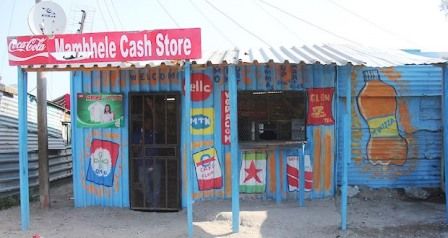
Tiger Brands goes after spaza market
Source: FoodStuffSA
Consumer goods giant plans to increase marketing and supply of its products at spaza stores to drive demand in cash-flush informal economy…
The owner of Koo, Oros, Ace maize meal, Black Cat, Albany, Beacon and Jungle Oats plans to increase the marketing and supply of its products at spaza stores to drive demand at the lower end of the market as it tries to grab a greater share of the informal economy and grow its business.
It plans to supply spaza shops directly in areas where there are no wholesalers. But in most cases, it will continue to use large and small wholesalers, while driving demand for goods with advertising and a trader loyalty programme.
The informal economy is cash-heavy and poorly understood but has been getting more traction as the middle-class economy stagnates. Shoprite and its USave brand have a strong presence in the lower-end market, while Pick n Pay is expanding the footprint of its Boxer stores in townships and peri-urban areas, where it expects to see the highest growth in sales.
“With the local informal market remaining largely untapped and statistics showing that it is growing at a faster rate than the modern trade, we see exponential room for growth in this segment and are engaging closely to support our traders and better present our brands to consumers at the point of purchase,” said Luigi Ferrini, Tiger Brands’ chief customer officer.
Many consumers still use local spaza shops to top up their shopping, especially as these outlets offer credit and often repackage products in small quantities.
Ferrini said spaza shops have “highly competitive” pricing and are not always more expensive than bigger chains.
Big variety of spaza products
Tiger Brands has 170 products that it wants to sell in spaza stores, with research showing that at times only about 27% of these items are available in the lower end of the market. The company believes there is room for growth, says Ferrini.
Tiger Brands plans to have its ranges available in 150,000 spaza stores in five years. At present its products are available at 46,500 spaza stores and it aims to grow the footprint to 50,000 by year end.
To drive demand, it will increase its advertising with branded fittings and fixtures in store, as well as murals and paintings on the outside of the stores. It has provided a software phone application to drive orders from traders.
It is providing fridges so the shops can sell cold Energade and Oros ready-to-drink juices.
Ferrini said Tiger has seen an increase in spaza shop visits, with an average consumer visiting a spaza shop at least four times a week.
The Township Consumer report, compiled by market research agency Survey 54 and digital agency Rogerwilco, found the number of people who shopped at spaza stores had risen to 51% in 2023 from the 44% recorded in 2022.
CEO of Survey54 Stephan Eyeson said its data shows the frequent visits were partly as a result of consumers buying perishable items on the day they need them because of load-shedding.
Tiger Brands has always sold premium brands such as Tastic and Black Cat, making it harder to compete with cheaper private-label products at retailers. It is launching more affordable brands such as Kasi Magic sauces.
Source: BusinessLive.co.za
News Category
- International retailers
- On the move
- Awards and achievements
- Legislation
- Wine and liquor
- Africa
- Going green
- Supplier news
- Research tools
- Retailer trading results
- Supply chain
- Innovation and technology
- Economic factors
- Crime and security
- Store Openings
- Marketing and Promotions
- Social Responsibility
- Brand Press Office
Related Articles

Warning of Eskom collapse

Knorr recalls brown onion gravy sachets

Eskom CEO shares good news about load-shedding

Tax warning for South African businesses


